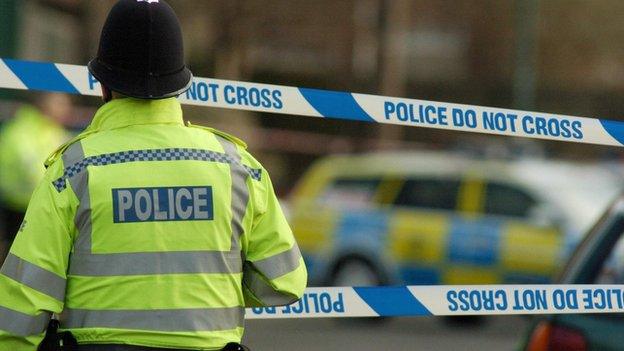Compensation body 're-traumatising' crime victims
- Published

Survivors of violent and sexual crime are being "re-traumatised" by the government's compensation body, the victims' commissioner has said.
Baroness Newlove said her review found the Criminal Injuries Compensation Authority (CICA) was needlessly forcing survivors to repeat traumatic details.
That body seemed "calculated to frustrate and alienate" those it should be helping, she said.
The Ministry of Justice, which oversees the CICA, is considering the findings.
Victims of sexual or violent crimes, including bereaved relatives of murder victims, are able to claim money from the CICA to help them recover.
That financial support can help them access counselling or improve safety measures around their home.
However, Baroness Newlove said the process of claiming support is often having a "detrimental impact" on their wellbeing.
Under the system, people need to provide details of the crimes against them including times, dates and addresses.
"Evidence demonstrates that completing this part of the CICA application form is highly traumatic as it re-triggers memories of the incident," the Conservative peer wrote.
"Yet, in every case, the CICA apply to the police for a full copy of the victim statement and reports so the need for the victim to repeat their story on their application form is unclear."

'A constant reminder of what we had to go through'
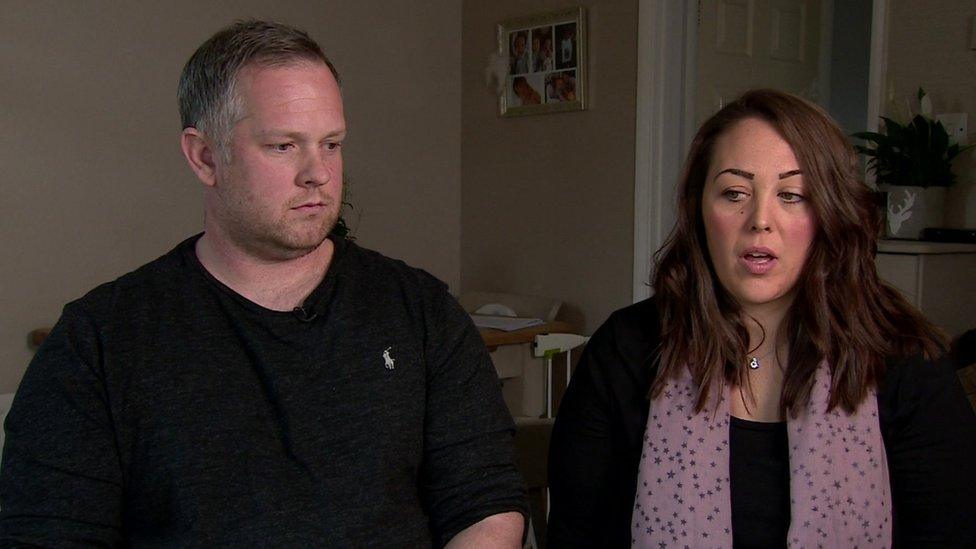
Holly Brannigan said the compensation process forced her to repeatedly "relive" the attack
Holly Brannigan, whose fiance Daniel Murphy had his jaw broken in three places in an unprovoked attack in 2014, said the compensation process forced her to repeatedly "relive" the attack.
Almost four years after the couple began their compensation claim, they have not reached an agreement and are going to a tribunal over the case.
Ms Brannigan said the authority queried that Mr Murphy had undergone surgery - she says X-rays show three metal plates in his jaw.
"Every time that they contact me wanting more information, which they already have, I have to relive it," Ms Brannigan said.
"I have to get out medical records and it's just a constant reminder for me and for Dan of what we had to go through."

The CICA has previously been criticised by campaigners for withholding compensation on arbitrary grounds.
In 2017 it emerged the authority was being investigated over concerns it had refused compensation to victims of child sexual abuse on the basis that they "consented" to the attack.
The authority changed its guidelines after pressure from charities.
In her report, Baroness Newlove called for the Ministry of Justice to review a rule that withheld compensation from victims who had criminal convictions.

Baroness Newlove said claiming compensation can have a "detrimental impact" on victims' wellbeing
She spoke to more than 200 victims, as well as police commissioners, support services and lawyers.
Fewer than two-in-five people could remember being told about their entitlement to claim by the police or victim services.
"This raises a question as to whether there are potentially thousands of victims who fail to claim compensation," Baroness Newlove said.
A Ministry of Justice spokesperson said: "Whilst no amount of compensation can make up for the immense suffering endured by victims of violent crime, we are committed to ensuring that they receive the help and support needed to rebuild their lives.
"We take this duty very seriously, which is why as part of our victims strategy last year we pledged to look at the difficulties faced by some when applying for compensation."
Its own review of the system is scheduled to report back later this year.
- Published8 January 2019

- Published9 September 2018
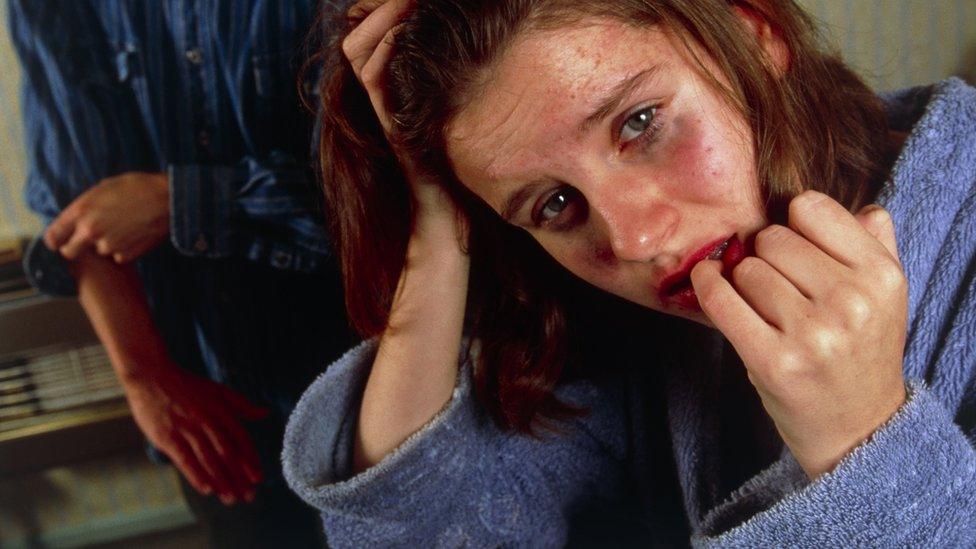
- Published24 July 2018
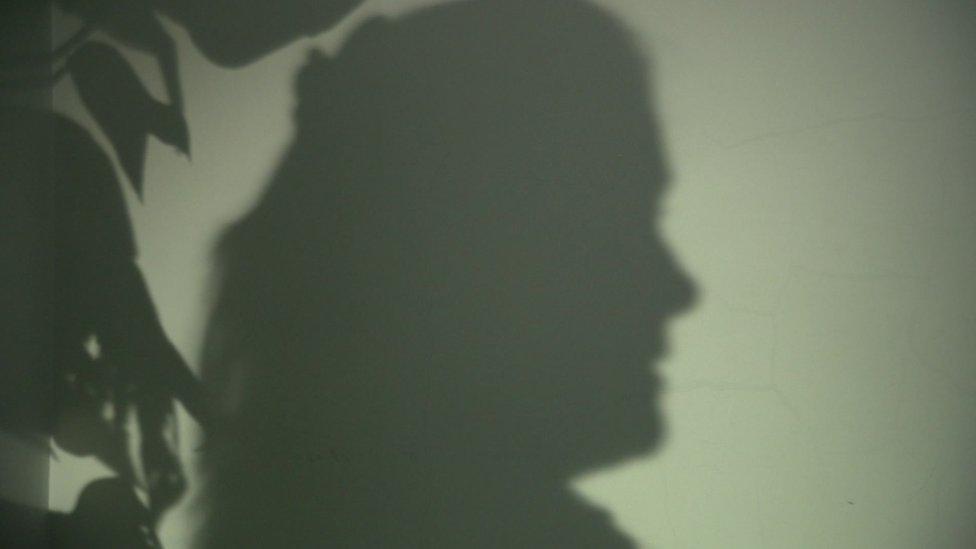
- Published1 October 2017
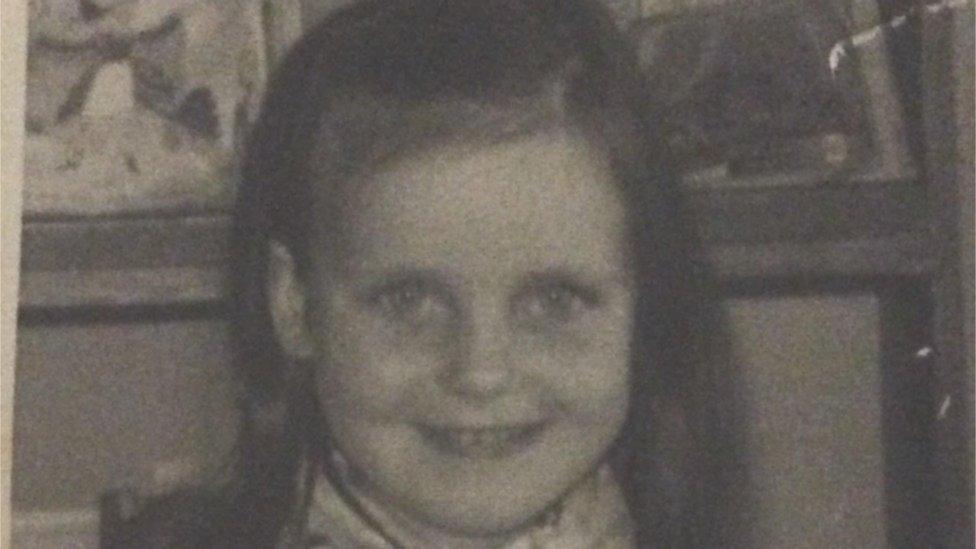
- Published27 January 2015
